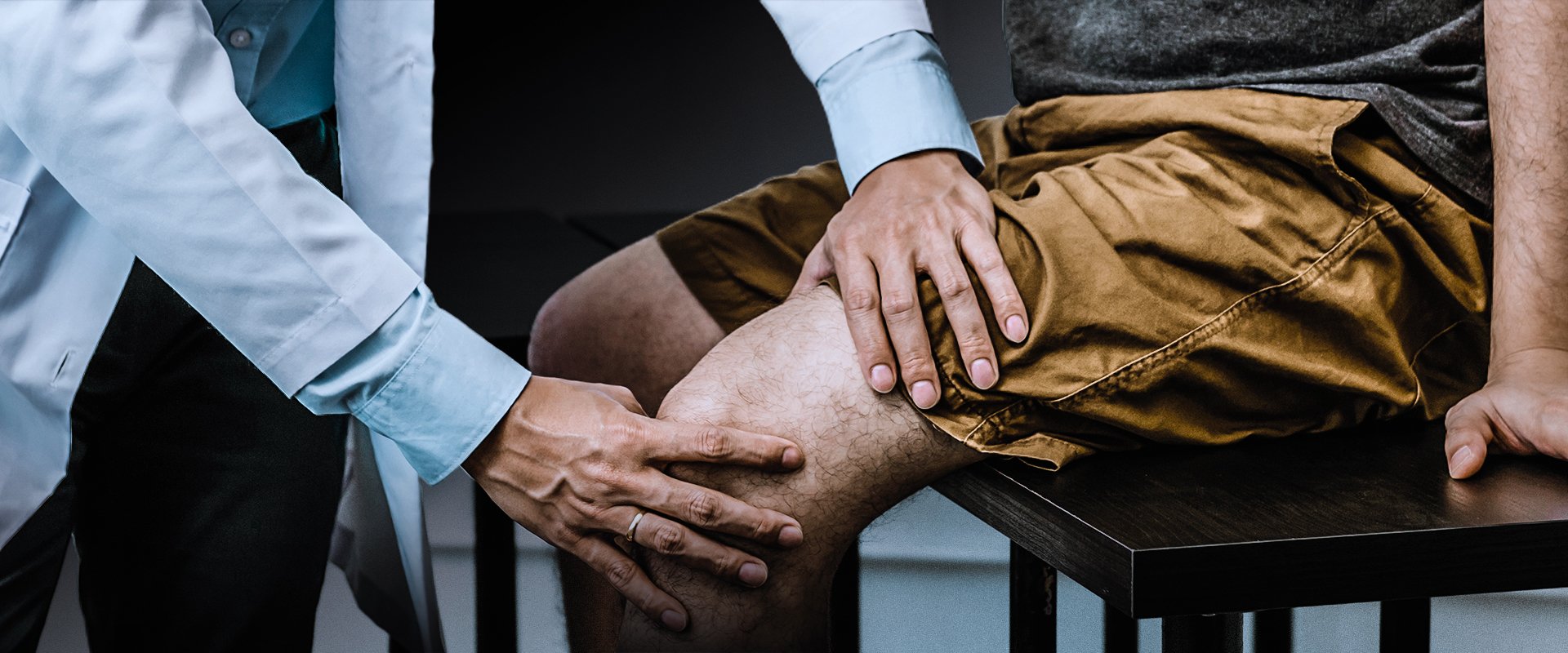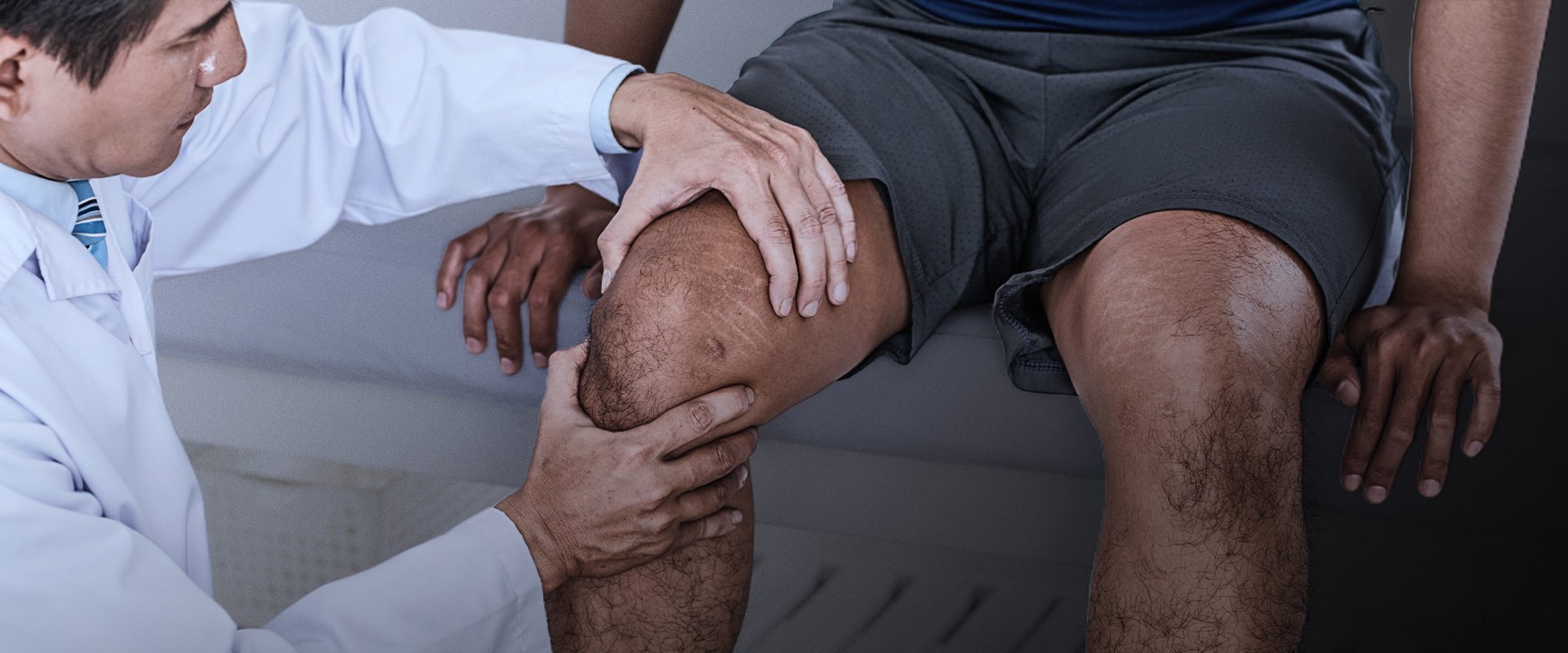
Prehab for Knee Surgery
AT EVOLVE
Prehab for Knee Surgery
HOW CAN PHYSICAL THERAPY PREPARE ME FOR KNEE SURGERY?
Facing knee surgery can be daunting but there are steps you can take to help prepare you for the best outcome after surgery. Working with one of our skilled physical therapists prior to your surgery, a concept called “prehabilitation” can help prepare the injured or painful area for the surgery, educate you on what to expect during your recovery and hopefully, shorten overall recovery time.
WHAT DOES PREHABILITATION FOR KNEE SURGERY LOOK LIKE?
My team of therapists and I will examine your knee and get to know the goals you have for recovery post-surgery. Prior to surgery, we will create a treatment program to help reduce swelling, improve muscle strength and neuromuscular control, restore range of motion and educate you on what to expect and how to prepare for surgery. Each of these things may help you to recover faster and more completely from knee surgery.
COMMON KNEE SURGERIES?
Knee surgeries are performed to address many different conditions affecting the joint and nearby areas. In the case of a traumatic injury like a serious fracture, surgery may be performed right away and there will be no time for prehabilitation. Under most circumstances, however, there is time to work with a physical therapist in anticipation of undergoing the surgery. Here is a list of knee surgeries that may benefit from a course of prehabilitation:
- ACL, PCL, LCL, MCL repair or reconstruction
- Arthroscopic Meniscectomy
- Meniscus repair
- Meniscus reconstruction
- Plica removal
- Lateral patellar tendon release
- Knee replacement
- Tendon repair
- Cartilage microfracture
End Injury Progression
Prehab physical therapy for knee surgery has proven to prevent injury, slow and even stop pain issues, improve performance, and reverse injury progression in many cases.
Relieve Pain
The movements used in this technique can target your entire body helping you to manage discomfort and pain during the course of your physical therapy treatments.
Improve Range of Motion
Posture awareness is an important area to focus on due to the fact that certain positions may cause you further discomfort and pain.
Restore Mobility
You can regain mobility and flexibility by taking part in the stretches and exercises as prescribed by your physical therapist.
How Long Will Prehab Physical Therapy for Knee Surgery Treatments Last?
If you decide to work with a physical therapist to help with knee prehab issues, your entire treatment plan could consist of around 8-20+ different physical therapy sessions that will each last 60-90 minutes. Once you complete your customized physical therapy treatment plan, you will be able to continue to do the prescribed stretches and exercises utilized during your PT sessions yet in the comfort of your own home.
PREHABILITATION FOR KNEE SURGERY
For those who elect to undergo knee surgery, there is often a period of waiting that occurs before the surgery is scheduled. While prehabilitation is not always required, it is often a great idea to work with a therapist during this time. In the case of ACL reconstruction, for example, it may be required by your surgeon to ensure the knee is in the right stage of healing to undergo surgery and to help improve postsurgical outcomes. The goal of a prehabilitation program is to target modifiable factors associated with long term outcomes and to prepare the patient for the recovery process. Four targets of a prehabilitation program for knee surgery often include:
- Restoring knee range of motion
- Improving muscle strength around the knee and in adjacent areas
- Increasing the level of activity prior to surgery
- Patient education
My team of physical therapists will guide you through this program to ensure your knee is responding appropriately. While every patient will be given an individualized treatment plan, here are some of the components we often incorporate into a knee surgery prehabilitation program:
Decrease swelling and restore range of motion
Trouble restoring full range of motion is one of the more common post surgical complications of knee surgeries, so establishing normal range of motion before the surgery is a way to help minimize this complication. Swelling and joint effusion can inhibit muscle activation which make it difficult to restore normal strength and motor control to the knee for return to normal activity. The use of ice, elevation, manual therapy techniques and compression may be used to reduce swelling.
Start a progressive exercise program
Patients often decrease their activity level in response to the knee symptoms that lead to their needing surgery. This makes logical sense as it reduces the likelihood that they will experience pain, swelling, stiffness and so forth, but it places them in a greater deficit going into surgery. This reduction in activity often leads to the development of muscle atrophy and decreased fitness levels. Working with a physical therapist prior to surgery can help you begin to restore your strength, coordination, fitness and neuromuscular control while controlling symptoms, so that your recovery after surgery takes less time. Additionally, your PT can help you find ways to restart a generalized exercise program without flaring up your symptoms which can help improve the health of your heart and lungs and improve blood flow for tissue healing.
Patient Education
The idea of surgery can be quite scary. Having an idea of what to expect after the procedure can ease some of your anxiety and help ensure you have what you need to support your recovery. Getting to know your physical therapist before surgery will help build trust with them when it comes time for post-operative care. They can also advise you on any equipment or modifications to your home that might be necessary, help you understand what kind of help or support you will need from others, and prepare you for how your body may feel after surgery
If you will be leaving the hospital with a shiny new walker, cane, or crutches, learning how to use them beforehand can be very helpful. Immediately post surgery, when you are still feeling the effects of anesthesia, and pain and stiffness are setting in, is not the best time to learn how to use an unfamiliar device that is meant to protect your recently operated-on knee.
WE SUPPORT YOU ON BOTH SIDES OF THE OPERATING TABLE
Prehabilitation for knee surgeries is an excellent choice for those wanting to get a head start on their recovery and to help improve their chances of a good surgical outcome. My team of therapists and I would love to help you prepare for your upcoming surgery. Call the office at Evolve today to get started.
Mill Basin (located in Harbor Fitness)
6161 Strickland Ave
Brooklyn, NY 11234
Monday: 7am-8pm
Tuesday: 7am-8pm
Wednesday: 8am-5pm
Thursday: 7am-8pm
Friday: 8am-1pm
Park Slope (located in Harbor Fitness)
550 5th Ave.
Brooklyn, NY 11215
Monday: 9am-8pm
Tuesday: 8am-6pm
Wednesday: 9am-8pm
Thursday: 8am-6pm
Friday: 8am-3pm
Gravesend
372 Avenue U
Brooklyn, NY 11223
Monday-Thursday: 8am-8pm
Friday: 8am-3pm
Ready to take the next step to a healthier you?
Contact Us Today!
PREHAB PHYSICAL THERAPY FOR KNEE SURGERY!
Need Prehab for Knee Surgery?
Let our caring and compassionate physical therapists help you with relieving pain while getting you back on your feet comfortably.
Call now to schedule your first PT consultation free of charge.
Call: 1-718-957-2422







